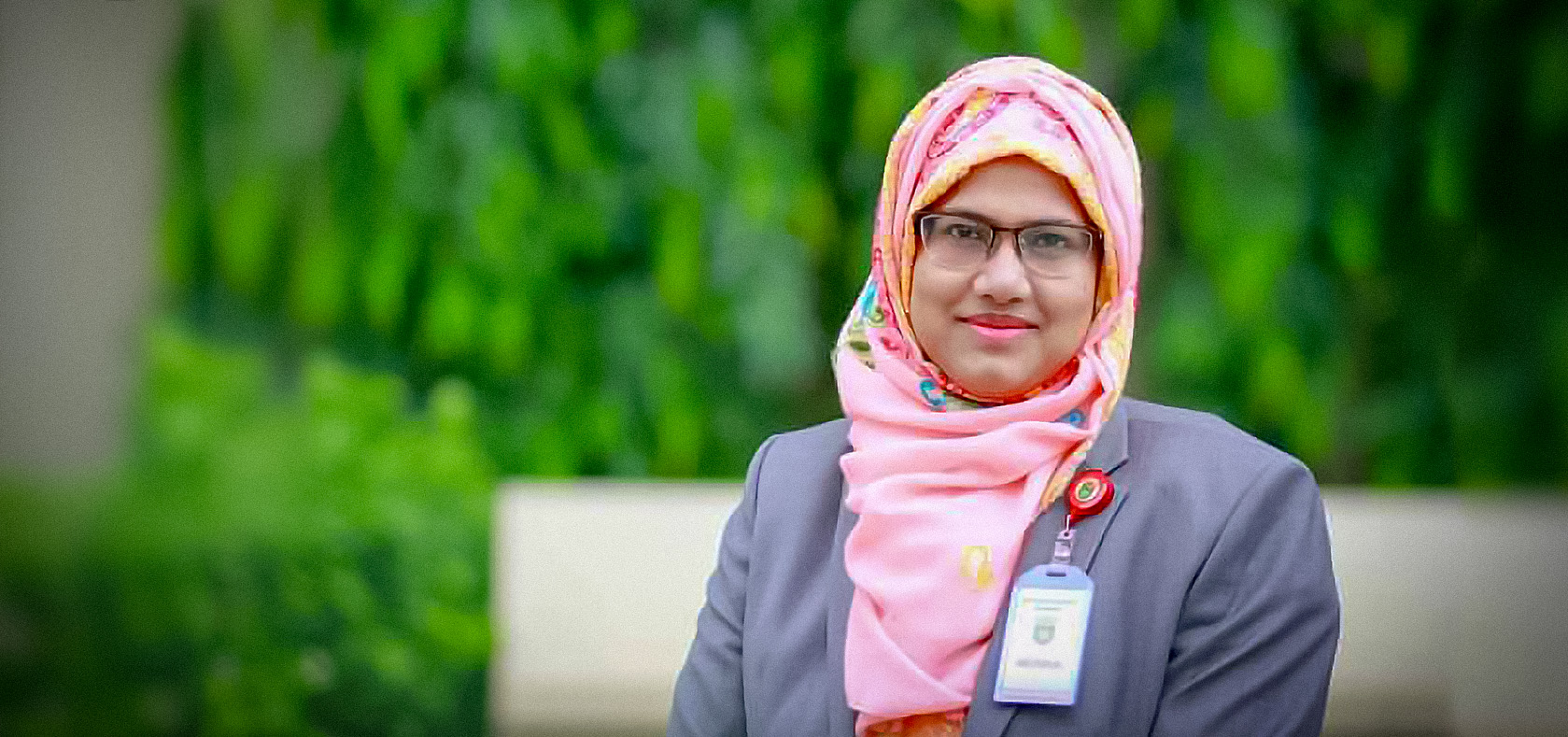In the words of Mst. Merina Afroz: "I monitor cases of gender-based violence and ensure that justice is served."
Date:

Mst. Merina Afroz is Camp-in-Charge in Rohingya camp–1 West in Cox's Bazar, Bangladesh. She works under the Refugee Relief and Repatriation Commissioner's Office, which is within the Ministry of Disaster Management and Relief. The ministry provides humanitarian assistance to Rohingya refugees from Myanmar along with the United Nations and non-governmental organizations (NGOs). Afroz’s duties include protecting female refugees from sexual and gender-based violence, mediating conflicts between the refugees and the surrounding communities, and running mobile courts to maintain law and order in the camp. According to the Office of the United Nations High Commissioner for Refugees, as of 30 September about a third of 1 West camp’s 38,840 residents were women and girls over 12 years.
UN Women is supporting Refugee Relief and Repatriation Commissioner officials, Camp-in-Charges, police and legal aid providers through training on gender-responsive humanitarian action, women's empowerment, and violence against women. UN Women also has six “gender field officers” who cover 13 camps and support the Camp-in-Charges.

In my camp, I deal with gender-based violence cases with the support of UN Women's gender field officers. I have to deal with four to five gender-based violence cases every day.
During the pandemic, women and girls in the Rohingya camp have been having a difficult time. Their husbands are staying at home due to the lockdown. Domestic work has increased dramatically, and domestic violence has become a ‘shadow pandemic’. … I have heard of a woman being beaten because her baby was crying out loudly.
Despite the language barrier, I make an effort to speak with the victims on a personal level. I pay close attention to them and try to understand the victim's point of view.
Many cases of adolescent girl molestation and eve-teasing have come to my attention. These are delicate cases that are difficult to handle, but I do my best to ensure that justice is served.
Through the Department of Social Services and the Ministry of Women and Children Affairs, the Bangladesh Government is also assisting survivors of gender-based violence.
I am the first female Camp-in-Charge in the Refugee Relief and Repatriation Commissioner’s history, and there were two female Assistant Camp-in-Charges before me. The Rohingya community is very conservative, but they welcomed me with open arms. This is a difficult job for a woman. Still, I have prior experience in demanding jobs, as I was Assistant Commissioner of Land and Executive Magistrate at the subdistrict level.
We believe repatriation is the only solution to improve the life of forcibly displaced Myanmar nationals. The society in the Rohingya camp is patriarchal, and to change them, we need to be aware of them. NGOs are more concerned with distributing non-food items to women and girls rather than asking them to find appropriate solutions to their problems. Before submitting any project proposal to the NGO Bureau, I suggest NGOs seek Camp-in-Charge’s advice.
As a government representative, I frequently call Rohingya and host community representatives to listen to their problems. I try to solve their problems by giving them the Refugee Relicf and Repatriation Commissioner’s explicit instructions. When I come to know about any gender-based violence issues, I contact the appropriate protection agencies for verification. After that, I send a recommendation to legal offices to ensure justice. I monitor all the cases under my jurisdiction. A few days ago, an 11-year-old girl was abused by a 45-year-old man in my camp area, and I double-checked the legal officer's case file.
I think that the forcibly displaced Myanmar nationals are suffering a lot in the camp, but they need repatriation to ensure their human rights and so on. I will request all the United Nations organisations, international NGOs, and NGOs to come forward to make the repatriation possible."